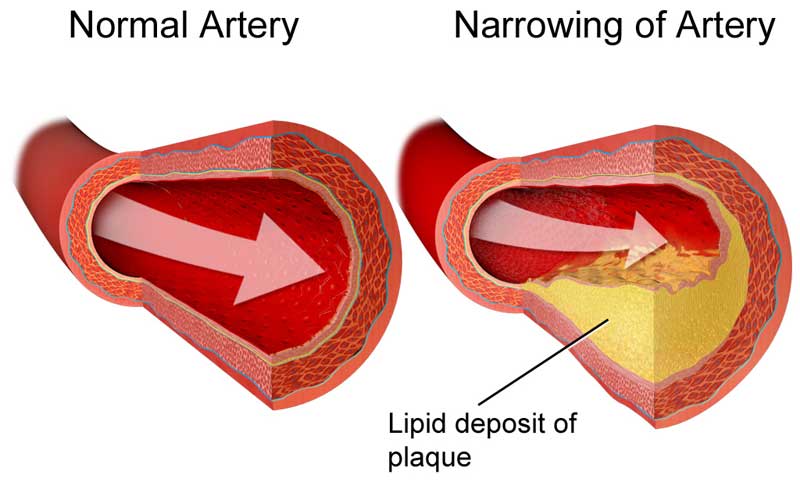Cholesterol is a type of fat known as lipid which is made in the body by the liver and in some foods.
It is found in every cell in your body and plays a vital role in keeping the body healthy.
Cholesterol is carried around the body by proteins in your blood.
When proteins and cholesterol combine they are called lipoproteins.
There are two forms of lipoproteins:
Low-density lipoprotein (LDL) cholesterol – carries cholesterol from your liver to the cells that need it. Too much LDL in your blood can cause fatty plaques to build up in the artery walls. This can lead to disease of the arteries such as heart disease. Therefore LDL is known as ‘bad’ cholesterol.
High-density lipoprotein (HDL) cholesterol – carries cholesterol away from the cells and back to the liver. The liver then breaks down the excess cholesterol. As HDL helps to reduce the risk of disease of the arteries, it is known as ‘good’ cholesterol.
When cholesterol is built up in the artery wall it can restrict blood flow to important organs such as the brain, heart and the rest of the body.
There is an increased risk of stroke and heart disease if you have low levels of high-density lipoprotein cholesterol and high levels of low-density lipoprotein cholesterol.
Some of the causes of high cholesterol are:
- smoking
- obesity
- diabetes
- eating high levels of saturated fat
High cholesterol can also be inherited, this is known as familial hypercholesterolaemia. This can cause high cholesterol even if you have a healthy lifestyle. About 1 in 500 people in the UK suffer from this condition.
If you are diagnoised with high cholesterol, you will be advised to excerise more and change your diet.
If your cholesterol levels haven’t dropped after several months, you may be prescribed cholesterol lowering medication such as fibrates. But like every medication they come with side effects. One of the side effects is erectile dysfunction in men.
Over half of adults in England have raised cholesterol.
If you have any concerns that you have high cholesterol, please see your GP.
If you think you suffer from erectile dysfunction, please go to www.ukmeds4u.com for your free e-consultation.